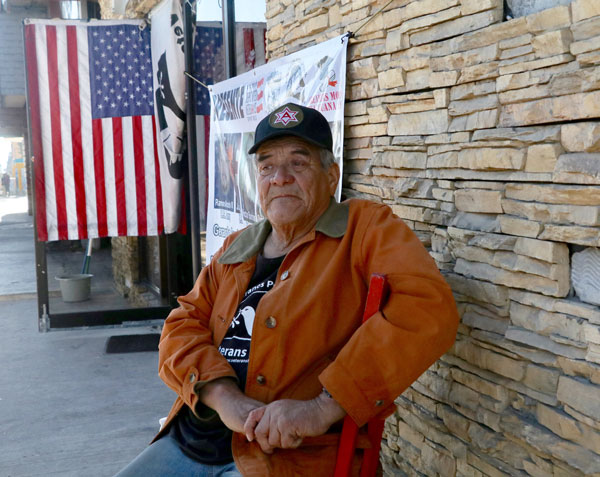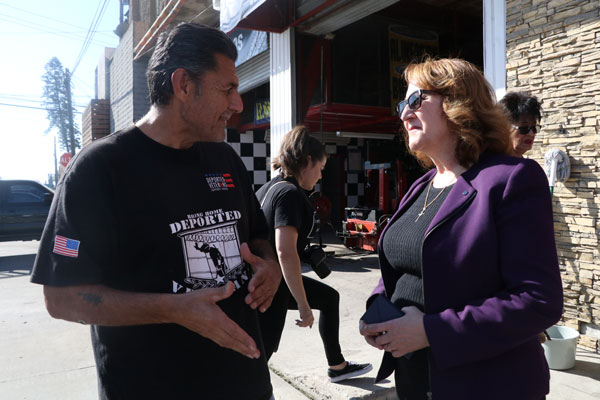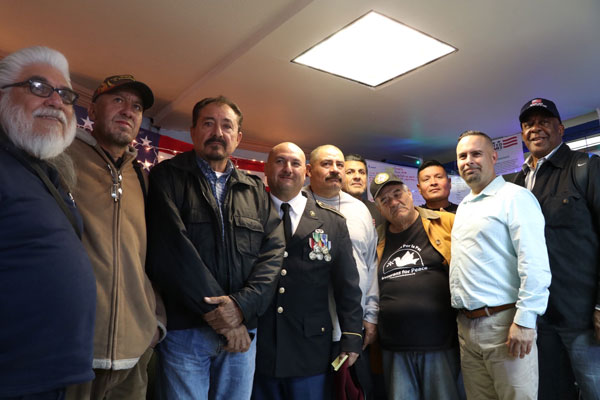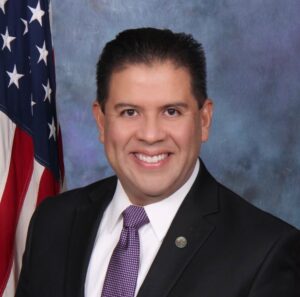Deported veterans continue to struggle on other side of border
4 min read
Photos: Anthony Victoria Andy de Leon, 72, immigrated with his family from Mexico to the Central Valley when he was 12 years old. He enlisted in the U.S. Army during the Vietnam War--serving for 12 years. Depression led de Leon to a life of drugs and incarceration, which evidently resulted in his deportation from the U.S. Hundreds of thousands of people living in Tijuana, Mexico today were deported at some time by the U.S. government. However, according to U.S. Army veteran Hector Barajas, who runs the Deported Veterans Support House, there is no agency that keeps track of how many deported veterans there are.
TIJUANA, Mexico–A clean cut U.S. Marine stood alongside fellow veterans at the Deported Veterans Support House last December to welcome a recent delegation of state and federal legislators.
Jose Luis Alvarez, with his perfect English and stoic physical presence, appears as American as any proud veteran. Except, he’s not. He’s a Mexican national whose world was turned upside down a month ago when he was given deportation orders.
Alvarez, 45, a former U.S. Marine was charged with a felony by Los Angeles County prosecutors. After being told he would be given a deal, Alvarez claims he was forced to leave the country.
“We did everything we could, and I still got deported,” expressed Alvarez. “I have a wife and a 3-year-old son back home. It’s hitting them real hard.”
Like Alvarez, who migrated to the U.S. with his family from Michoacan, Mexico in 1975, other veterans have left behind livelihoods on the other side of the border due to deportation. They’ve been convicted of crimes–mostly nonviolent–and have served time in prison. Once they complete their sentences, they are sent to border towns like Tijuana, where many of them struggle with poverty and substance addiction.
Hector Barajas, who founded the Deported Veterans Support House in 2013, said the “bunker” has become a resource center for exiled veterans that are in need of support. Barajas’ own experience with deportation–living on the streets in Tijuana–compelled him to help fellow veterans who were grappling with internal issues.
“There was a necessity,” said Barajas, who served in the U.S. Army. “We help [veterans] with VA benefits, we connect with ACLU attorneys, and we work with legislators to resolve issues.”
Barajas believes a lot of progress has been made in recent years. There is more media exposure, an array of support from state and federal legislators (some deported veterans have been pardoned by Gov. Jerry Brown), and there is more access to medical care. Barajas is awaiting a naturalization hearing that may see him return to the U.S.
Nonetheless, deported veterans continue to lack access to legal resources, struggle with drug and alcohol abuse, and renewed Post Traumatic Stress Disorder.
“One of the hardest things for these veterans is being away from their families,” Barajas said. “It’s hard for them to find housing and it’s hard to find access to medical health care. They’re facing renewed traumatic events–being incarcerated, facing deportation, finding a place to live, and getting clean and sober. It just amplifies their stress.”
California lawmakers introduced Assembly Bill 386–legislation that intends to help pay for legal fees for deported veterans that were previously stationed in the state or have children attending California schools.
Assemblywoman Eloise Reyes (D-Grand Terrace), Assemblywoman Lorena Gonzalez Fletcher (D-San Diego), U.S. Rep. Mark Takano (D-Riverside), the League of United Latin American Citizens, and U.S. born veterans visited the bunker on Dec. 27, 2017 to learn more about the experiences of the deported veterans. They took a tour of the center and listened to veterans’ testimonies.

Andy de Leon, 72, immigrated with his family from Mexico to the Central Valley when he was 12 years old. He enlisted in the U.S. Army during the Vietnam War–serving for 12 years. Depression led de Leon to a life of drugs and incarceration, which evidently resulted in his deportation from the U.S. Hundreds of thousands of people living in Tijuana, Mexico today were deported at some time by the U.S. government. However, according to U.S. Army veteran Hector Barajas, who runs the Deported Veterans Support House, there is no agency that keeps track of how many deported veterans there are.
“What started off as just a request from the Veterans Advisory group wanting to come to support turned into quite a delegation,” said Reyes. “These veterans served our country honorably. They put their life on the line. We are here because we want to see what we could do. We want to be sure that we find a way to one day say, ‘Welcome Home.’”
Felix Peralta Jr. served in the U.S. Army in the early 1980s and was honorably discharged. He was arrested in 1998 for aggravated assault and served three years in prison. He unsuccessfully fought against his deportation and was sent back to Sinaloa, Mexico in 2001.
Peralta admitted he held animosity against the U.S., which resulted in his “downward spiral” into substance abuse. His frustration was amplified when he learned his father passed away and his daughter committed suicide.
“It’s hard to adapt to this life,” said Peralta. “I was living in the streets until I ran into another veteran that brought me to this place. Now I’m doing this rehab, which provides me with my own psychologist to deal with my deportation and my daughter’s death. But life is very difficult here.”








